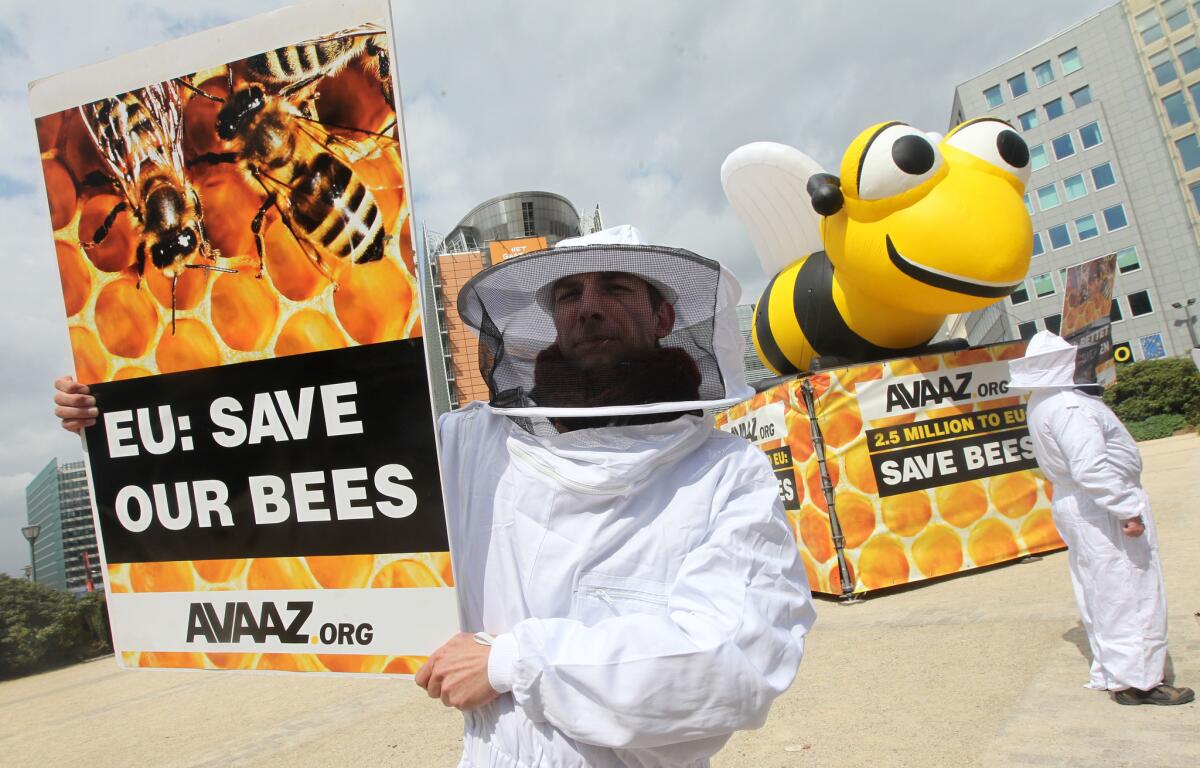European Union to clamp down on pesticides thought to harm bees

The European Commission will tightly restrict for two years the use of pesticides suspected of harming bees, despite opposition from some of the 27 countries that make up the European Union.
The European Commission, the EU’s governing body, announced the decision Monday after member countries deadlocked on whether to impose a ban. Starting in December, three kinds of pesticides will be largely off limits for crops that are attractive to bees.
The bee population in Western Europe and North America has dwindled over the last decade, causing alarm about the potential ecological and economic fallout if crops and wild plants are not pollinated. Scientists are still looking into why the bees are disappearing.
In January, the European Food Safety Authority said that its scientists had identified “a number of risks posed to bees” by three neonicotinoid pesticides -- clothianidin, imidacloprid and thiamethoxam -- spurring calls to curb their use.
Neonicotinoid pesticides were developed to eradicate a variety of sucking and chewing insects without threatening mammals. They target the central nervous system, leading to paralysis and death.
Matthias Wuthrich of Greenpeace Switzerland said scientific studies had found that such “highly toxic” chemicals can poison bees, disrupt their foraging and feeding behavior, and appear to hamper their ability to resist disease.
“Our bees and wild pollinators are too precious to risk losing them,” he wrote this month.
More than 2.6 million people signed an online petition by the activist group Avaaz to ban the pesticides. France and Germany are among several European countries that have already curbed their use.
However, the European Food Safety Authority noted some shortcomings in the scientific data. Several EU countries, including Britain, argued there was too little evidence to ban the pesticides.
Bayer CropScience, which produces neonicotinoid pesticides, said it was disappointed with the “draconian proposal” and warned European countries that “disproportionate action would jeopardize the competitiveness of European agriculture ... and have an enormous economic impact throughout the whole food chain.”
The European Commission said it would review the restrictions in two years, or when new information about the chemicals becomes available.
ALSO:
Cargo plane crashes at Afghan air base
Botswana president grazed by cheetah’s claw in ‘freak accident’
President Obama’s Mexico visit comes with backdrop of uncertainty
More to Read
Sign up for Essential California
The most important California stories and recommendations in your inbox every morning.
You may occasionally receive promotional content from the Los Angeles Times.










